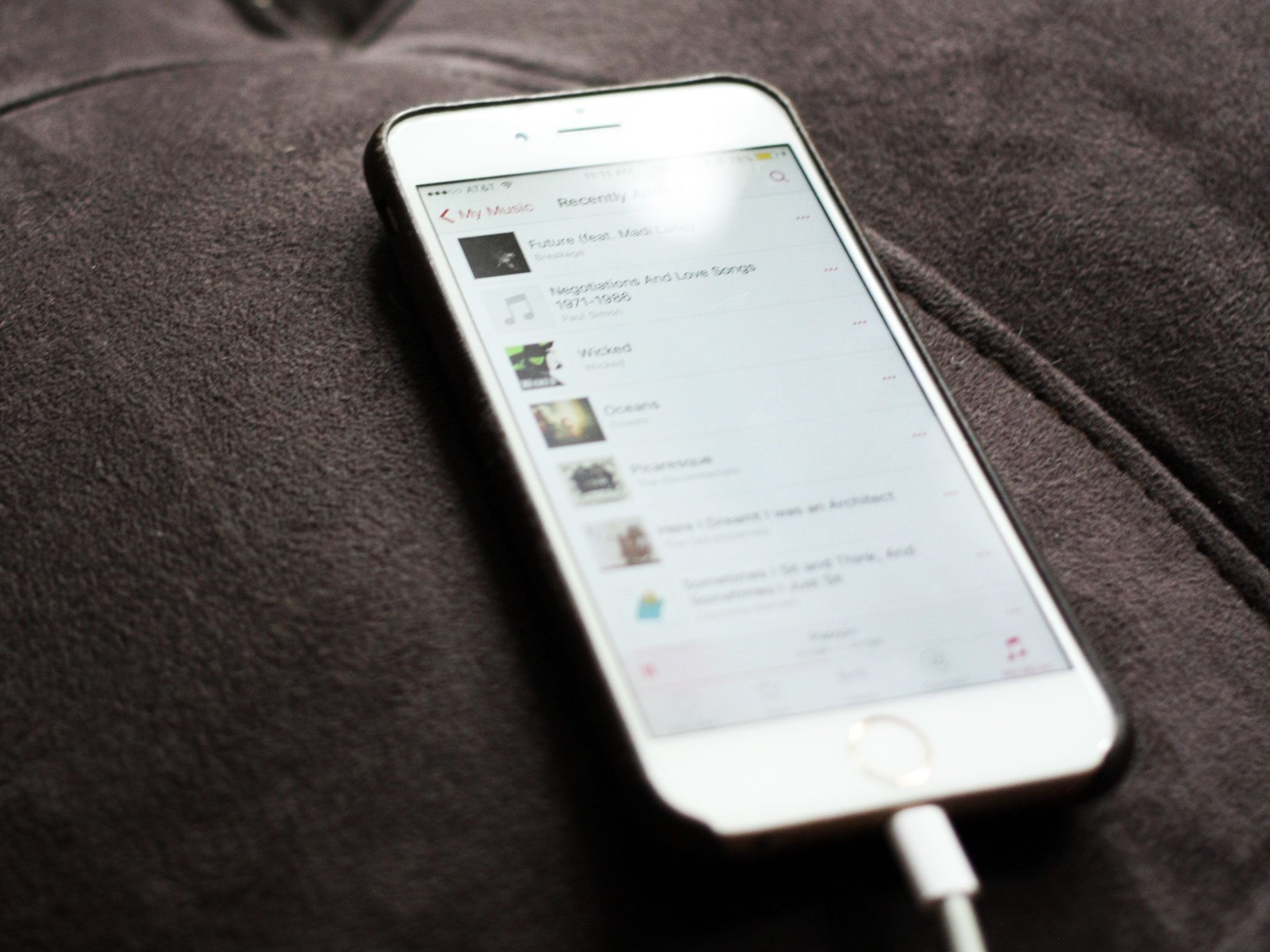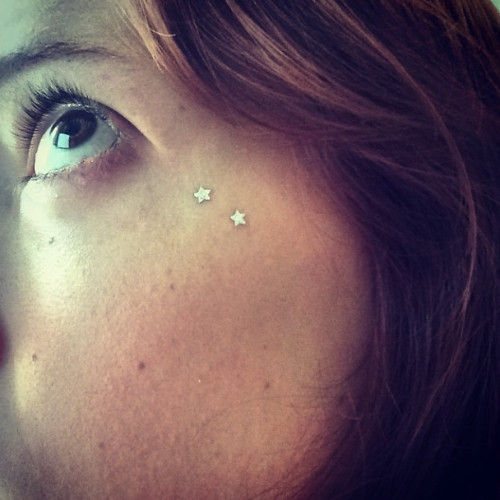Maybe it's time Apple Music stops matching tracks altogether

The idea behind iCloud Music Library is awesome:
- Sync your music library to the cloud.
- Have library everywhere.
- Rock out wherever you want, on whatever device you want.
The execution, unfortunately, is fraught with disaster. The Loop's Jim Dalrymple, a music lover and one of Apple's biggest supporters, lost music and swore off the service. Customers are freaking out. How did Apple get here? What happened to "All the ways you love music, all in one place"?
The origin of matching
In the beginning, there was iTunes. Music-lovers could rip purchased CDs onto their Macs and listen to them to their heart's content in the app.
Then came the iTunes Store, which let users purchase high-quality songs for a set fee. Ripped music and purchased music lived side-by-side in harmony — though you couldn't do much with that music, due to DRM.
After a few years, that DRM limitation was lifted due to some Apple wheeling and dealing and a $.30 price increase on tracks, which meant your music was yours and nicer-sounding than ever.
Unfortunately for those who ripped music early on, when slow and low-quality CD drives were the norm, those ripped tracks sounded far worse than their iTunes counterparts — especially higher-quality DRM-free versions.
So, a few years ago, Apple introduced iTunes Match: For $25, you could automatically upgrade any track in your music library that had an iTunes Store counterpart; you could then delete your old music file and replace that low-quality MP3 with a high-quality, DRM-free AAC track. (If that song didn't exist in the iTunes Store, you'd just stick with your old file.)
iMore offers spot-on advice and guidance from our team of experts, with decades of Apple device experience to lean on. Learn more with iMore!
Even better: If you paid that $25 every year, you could get up to 25,000 of your tracks to stream to all of your other devices, using a service Apple would later name iCloud Music Library.
If you stopped that $25/year subscription, you would no longer be able to stream your library to other devices, but your upgraded tracks were yours to keep. You got high-quality DRM-free versions of your tunes, and if you wanted to continue paying $25/year, all your local songs on all your devices. What wasn't to love?
Well, a few things. The iTunes Match algorithm wasn't perfect — it would occasionally match original songs with covers, and mess up album art. And if the iTunes servers were cranky, you often couldn't download your songs on your iPhone or secondary Macs. But overall, it wasn't a bad gig.
iTunes Match worked with Apple's iTunes Store catalog, which meant that users quickly got comfortable with DRM-free files that were theirs to keep. They could delete local files from their original library and get high-quality versions with no problems, and they could cancel iTunes Match at any time with no threat to their library. They'd lose their cloud-based library on their other devices, but that's what you paid the $25/year for — it made sense.
Enter: Apple Music. The service was lauded as another streaming music platform — one encumbered by DRM, because that's how streaming services function. (Without DRM, someone could download a bunch of songs and stop subscribing, keeping those songs forever. Record labels? Not too thrilled about that idea.)
But Apple Music wanted to be more than that. The company had seen moderate success with its iTunes Match program, and users said they loved having their owned music on all their devices. What if Apple Music could combine a streaming service with the music already in their users's libraries?
In theory, it was a lovely idea. In practice...
How DRM screwed everything up
While the Apple Music catalog and iTunes Store catalogs have similar songs within them, they are vastly different beasts: iTunes encodes all its tracks as DRM-free 256kbps AAC files; Apple Music files are 256kbps, but they're protected AAC files and require an active Apple Music subscription for them to play.
iTunes Match made sense: Users matched low-quality tracks for high-quality iTunes Store ones, and their library would be ready for streaming quickly because most of those high-quality tracks were already in Apple's catalog, saving them from lengthy manual uploads.
Apple Music uses this same idea, but to almost disastrous effect. Sure, it's quick to "upload" your library to Apple Music for the same reasons, but any tracks you re-download are protected music files from the streaming catalog — files that will essentially become non-viable as soon as you end your subscription.
This has resulted in lots of nasty problems, including users downloading what they assume is their own music onto secondary computers, only to have those tracks stop working if they end their Apple Music trial. Or those who upload their live music collections, only to find them matched with studio versions on their other computers. Or worst of all: People who once had iTunes Match and deleted their original libraries, filling them with DRM-encumbered Apple Music songs. (Please never delete your original library. Just don't. It's always a bad idea not to have a physical backup.)
This is a no good, very bad, downright terrible experience. It takes a nice idea (iTunes Match) and bastardizes it into a confusing hellstew I've had to write more explanation articles on than I can count.
Something has to change.
Kill the match
A radical proposal: Leave matching to the service that has matching in the title — iTunes Match — and take it out of Apple Music altogether. Instead, if Apple wants give users their libraries in the cloud with an Apple Music subscription, do it the old-fashioned way: uploading their original tracks. This takes DRM out of the equation, and it turns iCloud Music Library, essentially, into a musical version of Dropbox.
Yes, it will be slower. You know what? Dropbox is slow at first. Crashplan is slow at first. Heck, Apple's own iCloud Photo Library is slow at first.
You know what's forgivable? Slowness. I would pick a slow process a million times over before I chose "misidentifies my tracks and potentially makes them unplayable if I click the wrong button."
Yes, it's going to cost more for storage. Up the price if you have to. Make an all-upload Apple Music subscription cost more, or make it come out of your iCloud storage plan. I don't care. My job is to help people and calm their fears about technology so that they can use it properly. Right now, Apple Music is making that job next to impossible.
Apple Music is almost a year old, and in dire need of some improvements. Fix this, Apple. It's the right thing to do.
Serenity was formerly the Managing Editor at iMore, and now works for Apple. She's been talking, writing about, and tinkering with Apple products since she was old enough to double-click. In her spare time, she sketches, sings, and in her secret superhero life, plays roller derby. Follow her on Twitter @settern.

